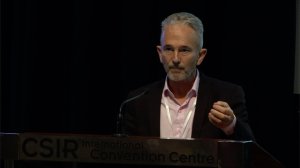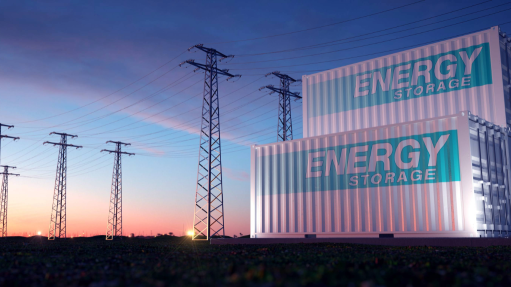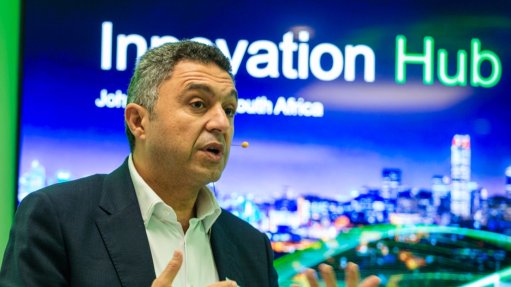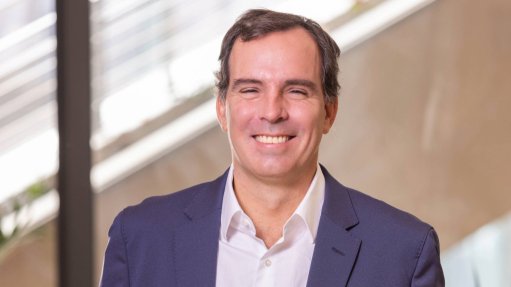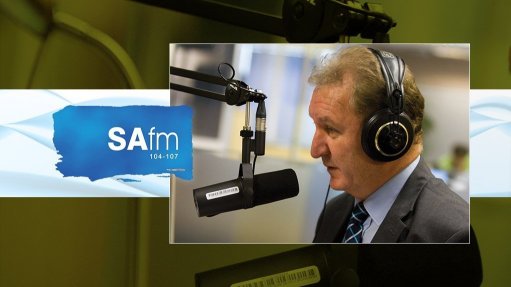Climate commission identifies areas to address in electricity recommendations

Presidential Climate Commission executive director Dr Crispian Olver outlines areas of consensus from the National Colloquium on electricity recommendations
Presidential Climate Commission executive director Dr Crispian Olver outlines areas of consensus from the National Colloquium on electricity recommendations
At a National Colloquium held on April 14, the Presidential Climate Commission (PCC) identified several key points, some facets of contention and further areas of consideration with regard to its newly released draft recommendations to government on national electricity planning, as South Africa reviews its Integrated Resource Plan (IRP).
Following discussions during the colloquium, the PCC reiterated that the country was in the midst of a global energy transition that held major implications for the South African economy, jobs and people’s welfare.
It was emphasised that protecting livelihoods was of utmost importance; however, the country should also seize opportunities to redress fundamental inequality and poverty in society.
A key point was that South Africa needs a plan on which there is consensus, and which is based on trust.
It was said that this trust needed to be built through action, with the country needing to focus on implementation. Speakers called for continued engagement and for transparency to be ensured.
Also, it was noted that adaptation and resilience needed to be integrated into the plan. It was emphasised that this was especially true in terms of a local focus; however, more importantly, it was posited that this needed its own investment plan.
Breakaway group dialogues at the colloquium each focused on different topics concerning the recommendations.
ELECTRICITY PLANNING & GRID EXPANSION
In this discussion, the importance of transparency and science in decision-making and planning was emphasised.
The upgrading and expansion of the electricity transmission and distribution grid was identified as the overriding priority.
It was indicated that there was a need to accelerate the deployment of new generation, concurrent with making the current fleet more efficient. This, it was posited, would engender rapid deployment, making electricity available to all, at the least cost.
It was emphasised that energy plans needed to be stress-tested against local conditions.
There was a disagreement on the role of variable renewable energy and security of supply. It was agreed, therefore, to interrogate local studies with experts.
The discussion also highlighted the need for a spatial planning approach, especially in the short to medium term, in planning and procuring capacity for the grid.
ELECTRICITY GOVERNANCE, ACCESS AND POVERTY
In this discussion, it was acknowledged that cost-reflective tariffs were needed, as these enabled service providers (generation, transmission and distribution) to recover costs.
It was noted that this must be offset by affordability based on least-cost supply and targeted free basic electricity (FBE) provision for the poor.
This would entail the State guaranteeing a minimum threshold level of consumption, estimated to be 350 kWh per household per month.
The discussion emphasised that the country needed a ‘transition-capable’ State to be able to navigate and regulate the complexities of the transition process.
It was noted that currently, local government was inadequately prioritised and funded.
The discussion called for the support of a Presidential-led independent study into pricing reform, including reconsideration of the local government revenue model. It was emphasised that this must be participatory.
LOCALISATION, JOBS & SKILLS
In this discussion, it was noted that the pace of the transition or decarbonisation must be managed in a way that protects livelihoods and maximises employment.
It was added that the country must be mindful of the transition risks weighed against moving too fast.
The discussion highlighted the need to localise supply chains, secure raw materials and build manufacturing capacity, with this to be linked to the accelerated deployment of low-carbon energy technologies.
It was indicated that localisation must be carefully planned with coordinated industrial and financing policy and network infrastructure that builds competitiveness.
Also, the need for sub-national green industrial strategies was highlighted.
The participants mentioned that companies should establish just transition plans with local participation.
They also emphasised that a major programme of investment in skilling, reskilling and upskilling was required to equip South Africa’s labour force for the future economy.
FINANCE AND THE JUST ENERGY TRANSITION
In this discussion, speakers said there had to be ongoing consultation around the Just Energy Transition Investment Plan and its implementation.
They called for proper governance and oversight mechanisms for all transition funding to be put in place, and for corruption to be prevented.
The need to find means to ensure sustainable financing of just transition elements was highlighted.
Also, it was emphasised that social ownership models for electricity generation should be explored and scaled up.
Speakers identified the need to build municipal capacity for implementation, as well as to explore innovative financing approaches.
Also, they called for transparency in how the just transition was integrated into the budgeting process.
The colloquium follows a series of information and consultation sessions that the PCC has been facilitating with South Africa’s social partners – business, civil society, government and labour – as well as youth and the faith community.
The outcomes of these dialogue events underpinned the discussions held during the colloquium, which, in turn, provided stakeholders with the opportunity to interrogate and inform the PCC’s consolidated recommendations.
The recommendations prepared by the PCC are in support of the ongoing national just transition process and seek to align with the Just Transition Framework approved by Cabinet in 2022.
The colloquium brought together a range of stakeholders to actively engage on the PCC’s recommendations on South Africa’s electricity generation mix and governance, and just energy transition investments.
The communities’ and PCC’s recommendations, emerging from the dialogue events, revolve around electricity planning and ensuring energy security under requirements to decarbonise the energy sector while protecting communities, and transitioning skills and creating jobs.
The electricity recommendations will be submitted to government by the PCC in the second quarter of the year, in support of the ongoing national just transition process. ![]()
Comments
Press Office
Announcements
What's On
Subscribe to improve your user experience...
Option 1 (equivalent of R125 a month):
Receive a weekly copy of Creamer Media's Engineering News & Mining Weekly magazine
(print copy for those in South Africa and e-magazine for those outside of South Africa)
Receive daily email newsletters
Access to full search results
Access archive of magazine back copies
Access to Projects in Progress
Access to ONE Research Report of your choice in PDF format
Option 2 (equivalent of R375 a month):
All benefits from Option 1
PLUS
Access to Creamer Media's Research Channel Africa for ALL Research Reports, in PDF format, on various industrial and mining sectors
including Electricity; Water; Energy Transition; Hydrogen; Roads, Rail and Ports; Coal; Gold; Platinum; Battery Metals; etc.
Already a subscriber?
Forgotten your password?
Receive weekly copy of Creamer Media's Engineering News & Mining Weekly magazine (print copy for those in South Africa and e-magazine for those outside of South Africa)
➕
Recieve daily email newsletters
➕
Access to full search results
➕
Access archive of magazine back copies
➕
Access to Projects in Progress
➕
Access to ONE Research Report of your choice in PDF format
RESEARCH CHANNEL AFRICA
R4500 (equivalent of R375 a month)
SUBSCRIBEAll benefits from Option 1
➕
Access to Creamer Media's Research Channel Africa for ALL Research Reports on various industrial and mining sectors, in PDF format, including on:
Electricity
➕
Water
➕
Energy Transition
➕
Hydrogen
➕
Roads, Rail and Ports
➕
Coal
➕
Gold
➕
Platinum
➕
Battery Metals
➕
etc.
Receive all benefits from Option 1 or Option 2 delivered to numerous people at your company
➕
Multiple User names and Passwords for simultaneous log-ins
➕
Intranet integration access to all in your organisation


